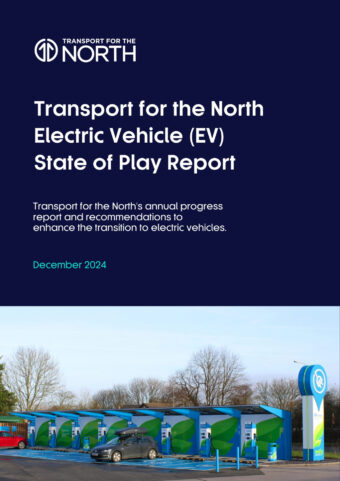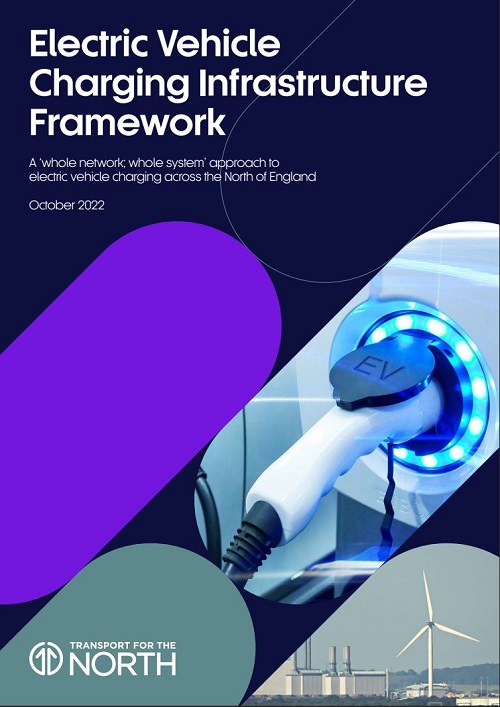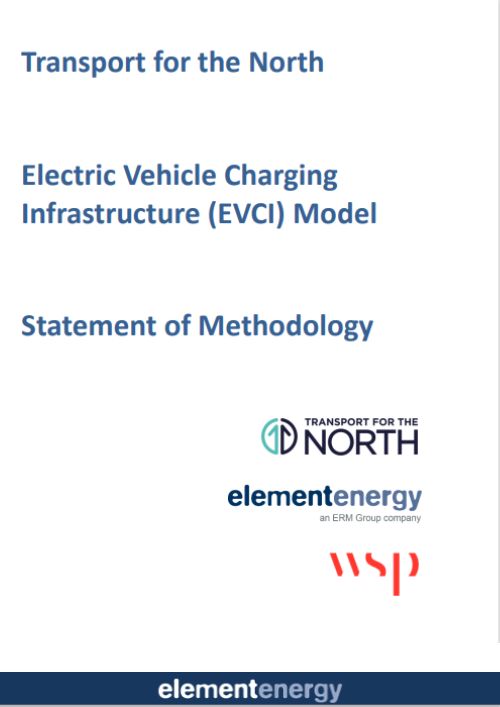The transition to electric vehicles is well underway. Whilst recognising the importance of public transport and active travel, it is clear that decarbonisation targets can only be met by changing how our vehicles are fuelled. New petrol and diesel cars and vans are being phased out and manufacturers are responding accordingly. The North currently has around 8 million registered vehicles, with 61 billion miles driven by cars and taxis each year. In addition, Additionally, there are over 970,000 vans, and around 12,000 heavy goods vehicles (HGVs), whilst over 90% of freight lifted by tonnage is moved by road. Currently there are around 250,000 EVs in the region, with around 17,000 chargepoints (plugs). Momentum is growing with a range of policies, alongside public and private investment, with TfN well placed to provide strategic cross sector thinking, as well as monitoring, forecasts and supportive collaboration across its partnerships.
The move to electric vehicles has huge potential to support our strategic ambitions for the North. Alongside making the most significant contribution to reducing carbon emissions from surface transport, it has the potential to build on existing vehicle manufacturing in the region by increasing investment in ‘green economy’ skills, training and vehicle production, therefore increasing economic productivity. It is also important that the transition is fair and accessible, ensuring all residents and businesses who require access, have the option and ability to use an electric vehicle.
EVCI framework

Transport for the North recognises that infrastructure planning requires an approach beyond local authority boundaries, taking a cross sector, systems approach. Utilising our regional analytics, transport modelling and technical expertise, we have produced an openly accessible Electric Vehicle Charging Infrastructure (EVCI) Framework that provides current and forecasted requirements for EV chargepoints.
Our evidence on EV chargepoints is available through a user-friendly online visualiser
We also actively engage with our partners to support collaboration and sharing of best practice via an EV Forum and regular direct contact. To support this work, we have produce an EV State of Play report fwith recommendations.

We have compiled our evidence and engaged with partners to produce an annual progress report on the North’s transition to EVs. Download a copy to understand the current status and future need projections, along with fifteen recommendations to further enhance the pace of our transition to Electric Vehicles. We will be revisiting this report annually and will use the recommendations as a basis for continued work with regional and national partners, to focus in on what needs to happen to operationalise these actions.
Read the report
Our evidence identifies the scale and pace of change required across our region to support a rapid transition to electric vehicles. By developing robust evidence we can support decision-making and manage the many uncertainties around EVCI deployment to accelerate infrastructure role out across the region with confidence, while maximising value for money.
Read the reportWe’ve produced a slide pack which lays out the approach to Electric Vehicle Charging Infrastructure (EVCI) model development.
Our Statement of Method below outlines the full technical approach, data sources, inputs and outputs for our EVCI framework evidence base. For any additional information or queries regarding data usage, please contact [email protected]
EVCI Framework Statement of MethodologyTransport for the North has made publicly available the Transport for the North EV Charging Infrastructure framework visualizer tool and the Transport for the North EV Charging Infrastructure – rapid charging location tool. These tools are available to use under the Open Government Licence v3.0.
Additionally your use of these tools indicates your acceptance of the following Disclaimer and Appropriate Use Statement.


Our Electric Vehicle Charging Infrastructure framework has been developed to support local authority and national government partners in the planning and deployment of local

The EVCI model forecasts the electric charging infrastructure needs across the North of England. Our evidence provides additional clarity on the scale and pace of change requi
CLOSE POPUP [X]